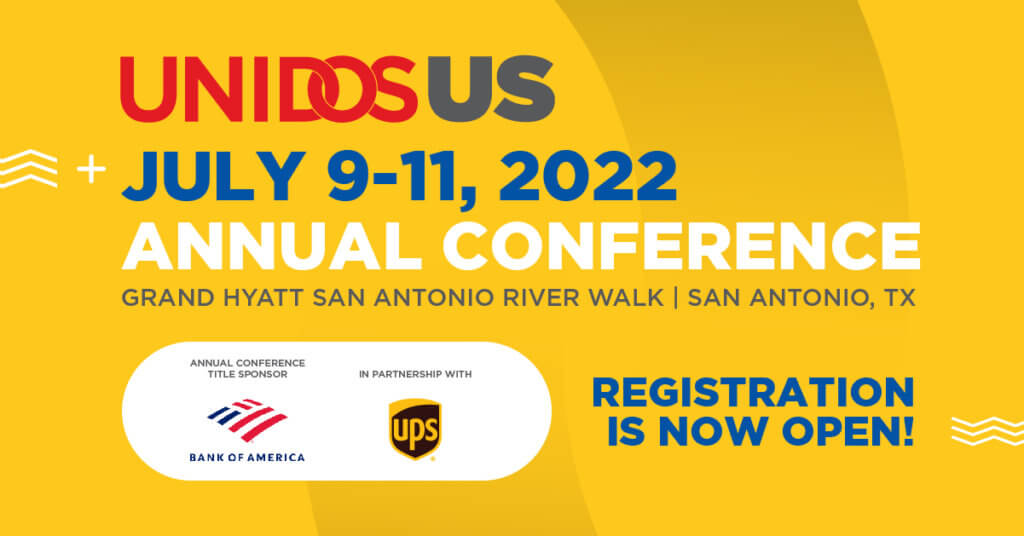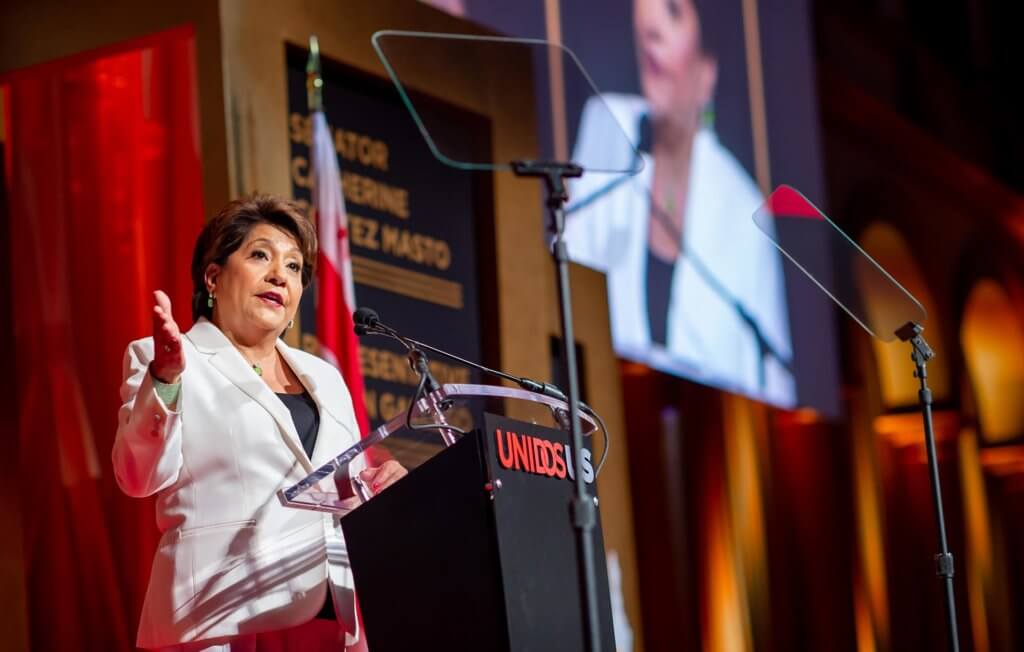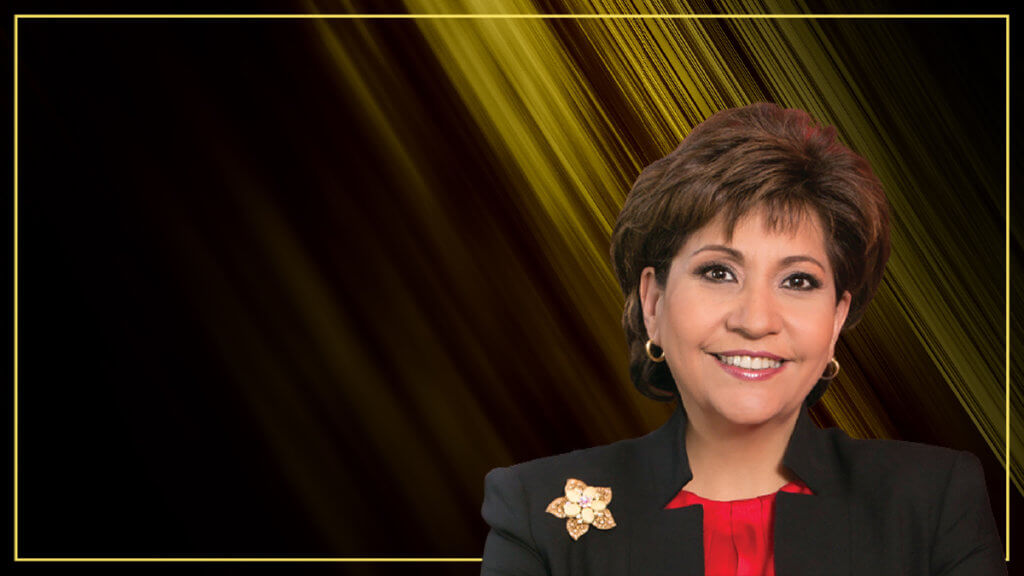How our youth can use their stories to relentlessly demand change
UnidosUS Affiliate El Pueblo’s Youth Council teaches young advocates about the power of their personal story to make policy change during a storytelling workshop at the 2019 UnidosUS Changemakers Summit.
By Stephanie Presch, Content Specialist, UnidosUS
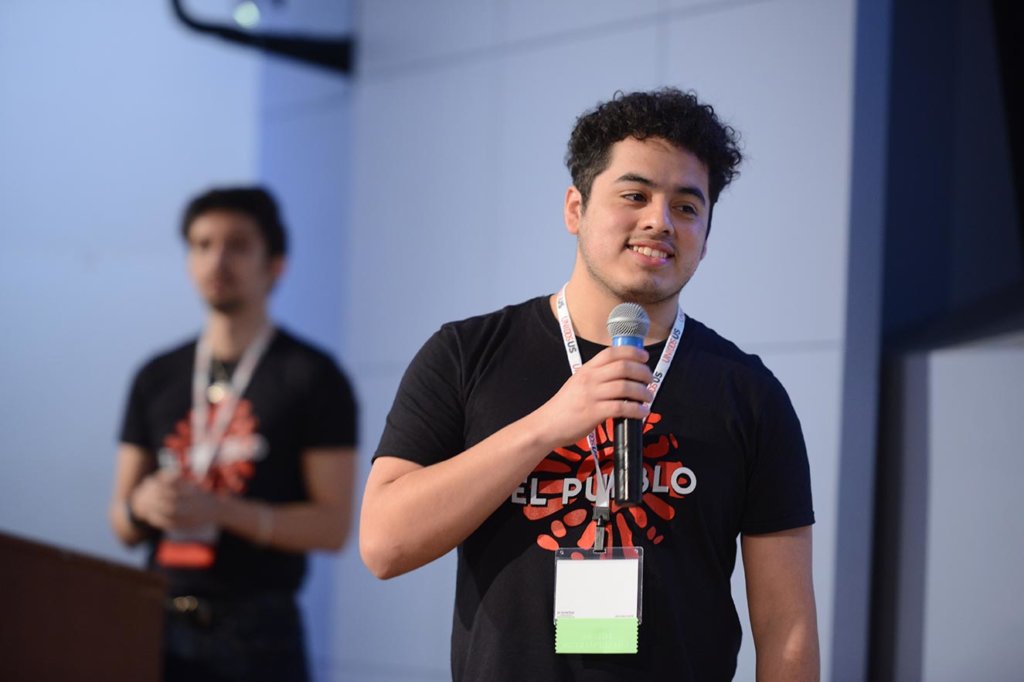
Keep up with the latest from UnidosUS
Sign up for the weekly UnidosUS Action Network newsletter delivered every Thursday.
“If immigrants are under attack…”
“Stand up, fight back!”
“If our families’ rights are under attack…”
“Stand up, fight back!”
“What do we do?!”
“Stand up, fight back!”
This week we gathered with more than 300 young advocates and community leaders at the 2019 UnidosUS Changemakers Summit in Washington, DC. One of the powerful workshops at the event was focused on how every individual can use their personal story to advocate and make policy change.
This was the focus of the “Our Stories, Our Power: Storytelling Workshop,” led by the El Pueblo Youth Council. UnidosUS Affiliate El Pueblo in Raleigh, North Carolina has strong experience as a direct advocate organization, meeting with elected officials from their district, as well as with state and local officials.
This advocacy has had real results: they have stopped anti-immigrant bills from moving forward in the North Carolina General Assembly, and have held vigils, for example, to protest the Trump administration’s attempt to end DACA (Deferred Action for Childhood Arrivals).
RAT BITE
“Storytelling can be manipulated in many ways, which is why it’s important for us to tell our own stories,” said Melanie, a member of the Youth Council.
During the first part of the session, the representatives from the Youth Council demonstrated how the way that stories are told has an impact with an activity they called “Rat Bite.” In this activity, they had three of the council members read the same story about a baby who had been bitten by a rat while his mother wasn’t home. Each version of the story inflected different points, demonstrating how a story could morph from a tragic accident to a deliberate, malicious act.
“Stories can move a person more than facts and numbers,” Reina, another member of the council, explained at the conclusion of the activity.
At #ChangemakerSummit19, sharing storytelling skills with new friends and allies from across the country. #EPinDC @WeAreUnidosUS pic.twitter.com/uN0t0XlmkO
— El Pueblo, Inc. (@elpuebloinc) March 26, 2019
“People will try to ‘blame’ your parents for bringing you to this country. Do not let them. Your parents are amazing and wonderful; they are the original DREAMers.” – Mike Figueras, El Pueblo. #Changemakersummit19 @WeAreUnidosUS pic.twitter.com/MfthQjE1Bg
— El Pueblo, Inc. (@elpuebloinc) March 26, 2019
CONOCIMIENTO
During the second activity, the presenters led a discussion with the audience by having everyone complete an activity that they called conocimiento. Some of the questions that they prompted the audience to think about were, “Are you named after someone,” “What are you,” and “What were the three most important and positive things that ever happened to you in your life.”
The participants were then invited to share their reflections on the activity and explain how they interpreted the questions that they were given.
Leslie, a student, said her answer to “what are you?” focused on reaffirming her identity. “Everybody in this room could have interpreted that in a very different way,” she said. “I chose to put it as ‘I’m brown, a community leader, successful, educated, and courageous.’”
Another student, Carlos, offered up this answer for the question “How do you want to be remembered?”. “I want to be remembered for being someone who puts others before me and makes an impact.”
After the reflective period had ended, Miguel Figueras, Youth Program Coordinator for El Pueblo, asked the audience to remain steadfast when telling their story. “If they feel uncomfortable hearing about it—too bad for them! This is your story.”
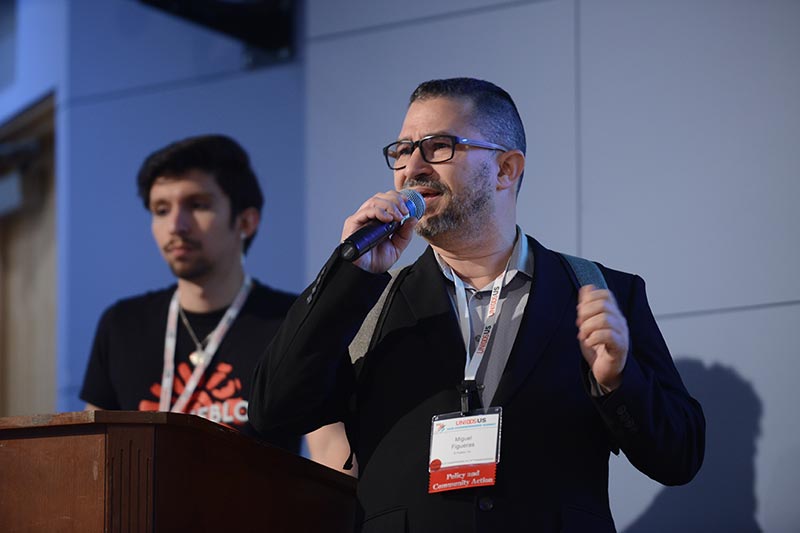
STORY CHAIN AND “I AM FROM”
During the third activity, the Youth Council members had everyone on both sides of the auditorium stand up and participate in a Story Chain.
“This activity has deep roots in Central and South America,” said Figueras. Both sides of the room were then given a few words, and each person added on a few words of their own, to weave a shared narrative.
During the next activity, Mary Jose Espinosa, the Civic Engagement Coordinator at El Pueblo, read her “I am From” poem, and each of the participants were encouraged to write their own during to reinforce their own sense of identity and purpose in the advocacy that they would do on Capitol Hill the following day.
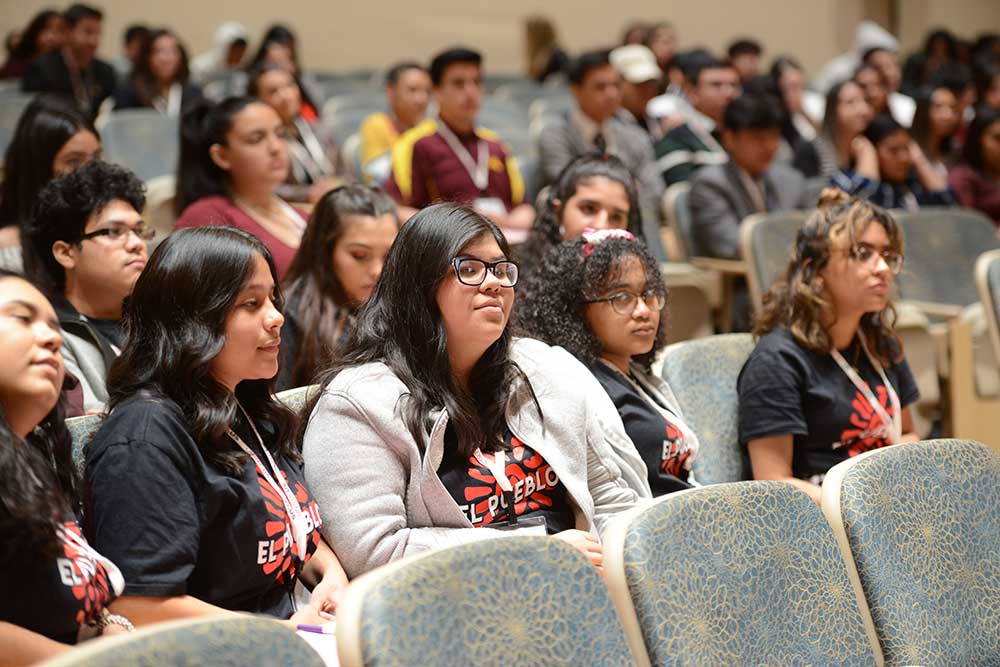
“BE RELENTLESS WITH YOUR STORIES”
“You guys need to be relentless with your stories,” said Johan, also from the group from El Pueblo. “You need to come demanding, because we’re sick of waiting.”
He reminded everyone in the room that they are more than just “sob stories” that are part of their congressperson’s “routine.”
“We’re constantly faced with these issues,” Johan added, explaining that to truly move their representative, they have to see how an issue impacts their daily life.
Jose, another member of El Pueblo’s Youth Council, concluded by laying out a number of tips for those young advocates who were planning to go to Capitol Hill the following day. “Remind yourself of what you’re fighting for, exercise your values—realize that you aren’t asking for pity or favors, you are demanding respect and all the rights that are owed to you as a human being.”
